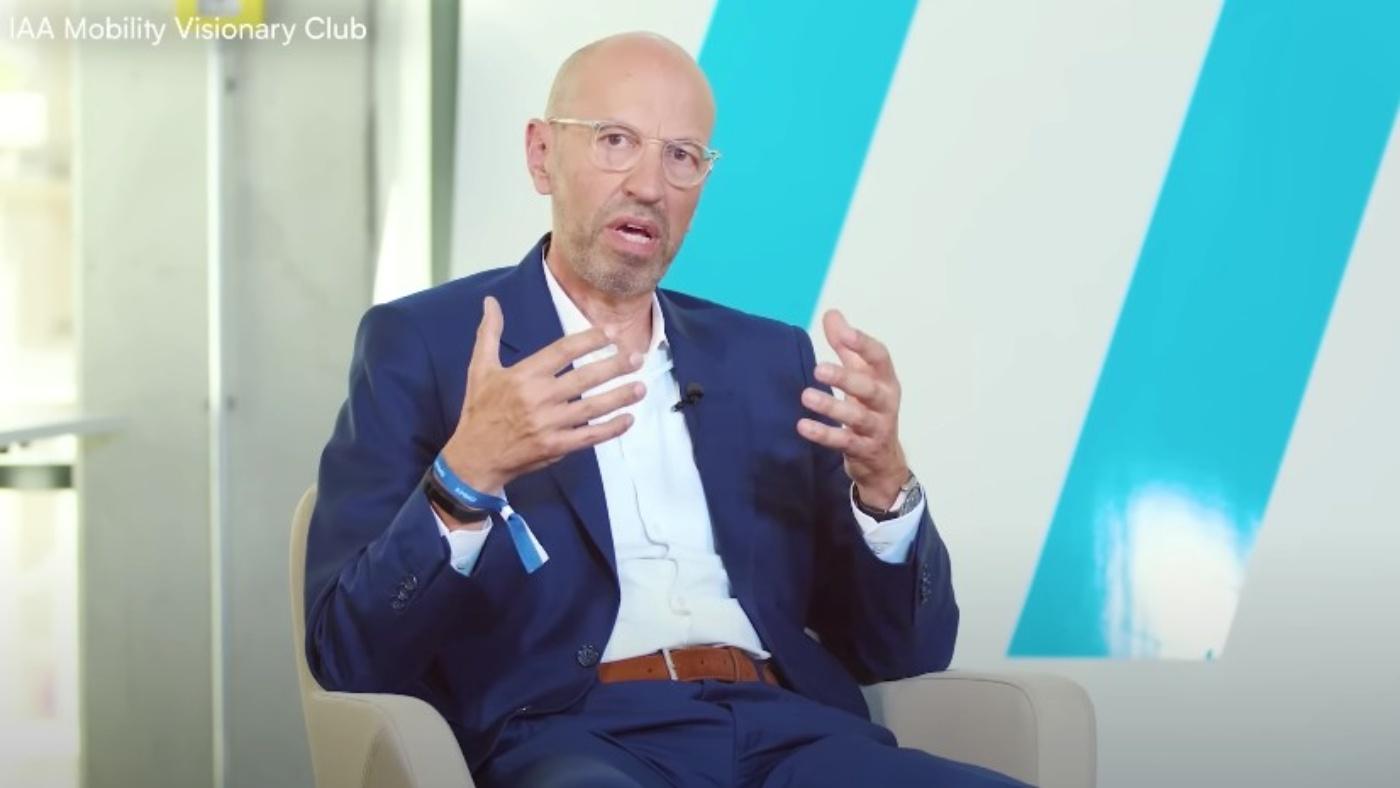Agile, focused, creative: start-ups as drivers of innovation in the automotive industry
Who will shape the future of mobility: innovative start-ups or the established automakers? Ideally they will do it together. The journey seems to be heading towards partnership – why and how this can drive innovation is a topic of discussion in the latest episode of the IAA MOBILITY Visionary Club. It marks the start of a Summer Special exploring the world of start-ups.
Volkswagen does it. Porsche does it. Mercedes does it as well, just like BMW, Continental or Bosch. This list could go on, almost indefinitely. Hardly any manufacturer or major supplier in the automotive industry is willing to ignore programmes such as incubators or accelerators, which established players use to identify and promote promising mobility start-ups and ideally to draw them into partnerships. This takes a lot of investment: for instance, an analysis by the news portal Crunchbase reveals that automakers conducted private funding rounds with a total value of over USD 9.6 billion between early 2020 and the summer of 2021 alone.
Cooperative spirit in response to the pressure to innovate
The burgeoning spirit of cooperation is also attributable to the pressure to innovate weighing on the industry, which is noticeably aggravating current challenges such as the switch to e-mobility or progressive digitalisation. “New technologies and business models are essential to the future of mobility”, agrees Jürgen Bilo in the IAA MOBILITY Visionary Club. Bilo is managing director of co-pace GmbH, Continental’s start-up programme.
So the focus is on new things, and innovation blossoms and flourishes in the start-up world especially. They are small, agile and have a clear advantage, says Stefan Cülter, responsible for start-up cooperation and scouting at the Volkswagen subsidiary CARIAD. “They place a clear focus on niche areas and on a specific problem, while a major supplier, for instance, has a broad target audience and is more or less compelled to solve everyone’s issues.” Access to billions from venture capitalists is another factor, besides the focus. CARIAD also invests in start-ups – and reaps the rewards. “We can learn a lot just by observing how they approach and resolve problems”, adds Cülter.
Combining rejuvenation with a cash infusion
Ideally, a blend of big names and fresh ideas will be a match made in heaven: close proximity to creative start-ups will, in the best case scenario, help to rejuvenate large companies. The young businesses then act both as incubators of innovation and metronomes. Naturally, the start-ups also benefit from collaborating with established players – even beyond the cash infusions. “Large companies can scale, offer proof of technology and provide access to huge markets”, says Bilo. In addition, including a big name on the list of testimonials attracts attention and sends a signal to the whole industry.
Building new products
Cülter adds that a clear focus is needed from day one for both sides to benefit from these partnerships: “Companies often cooperate with start-ups as an end in itself, without it having a particular purpose or solving any problems.” By contrast, CARIAD has adopted the strategy of identifying issues at its own company that it then addresses with start-ups, before becoming a customer to the nascent businesses if everything works out well. What really matters: being aware of what you are looking for. Bilo highlights this point as well: “We look for issues with strategic or operational relevance. Our concern is to create new products, portfolios and strategies.” Partnerships like the one with Apex.AI have emerged from this approach. Continental intends to use the company’s already certified meta operating system to significantly shorten the development cycles of new mobility functions for automated and autonomous driving.
Openness is becoming a management task
But innovative start-up solutions – this much is clear as well – do not integrate themselves into a large company as if by magic. It takes the right attitude, along with sufficient leeway and resources, says Bilo. “And that’s a management task.” It does hold potential, though, as it can elevate a company’s innovative power and speed. After all, what we need to become more innovative is obvious, adds Bilo: “We have to be inquisitive – and quick on our feet.”
